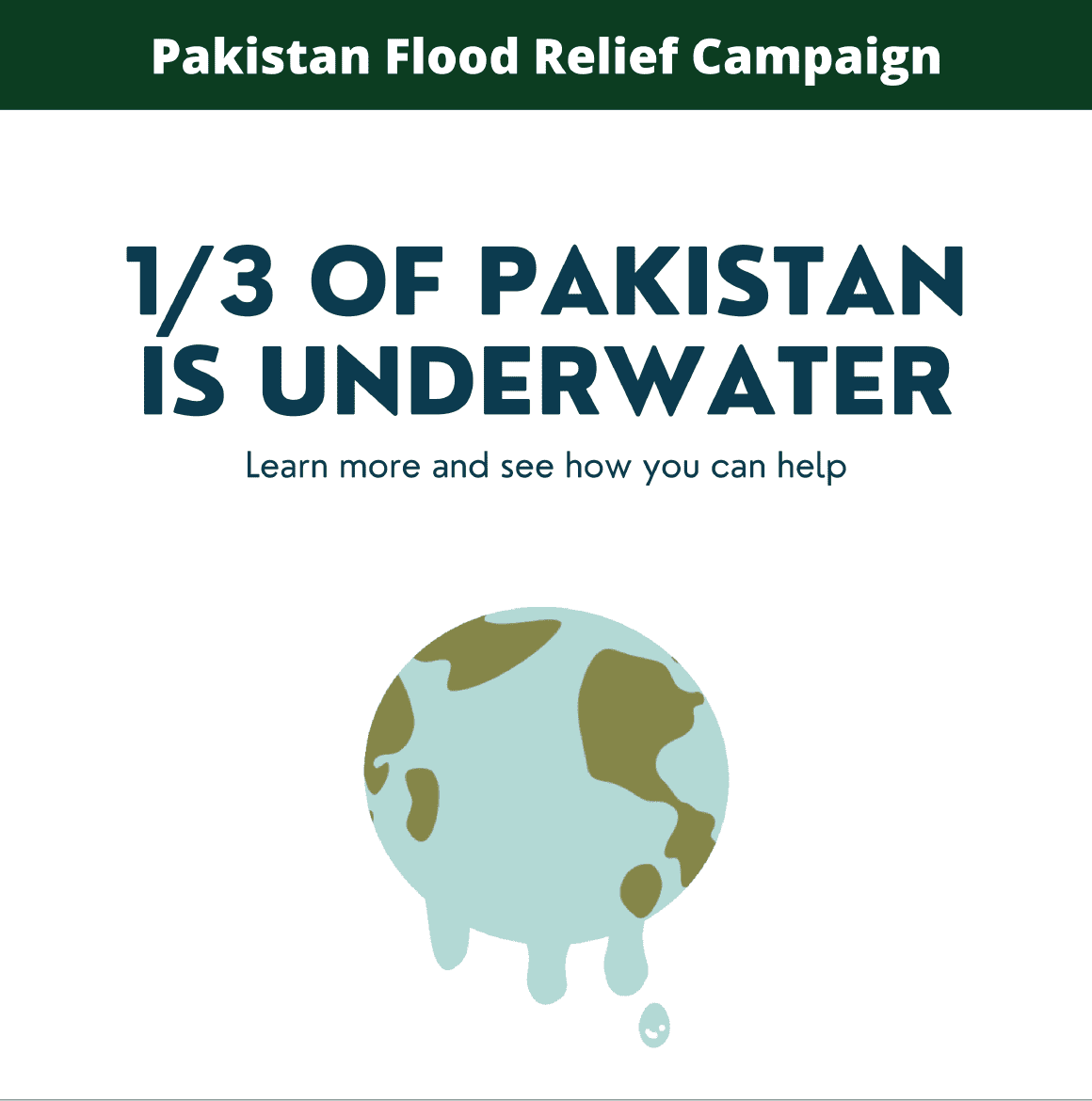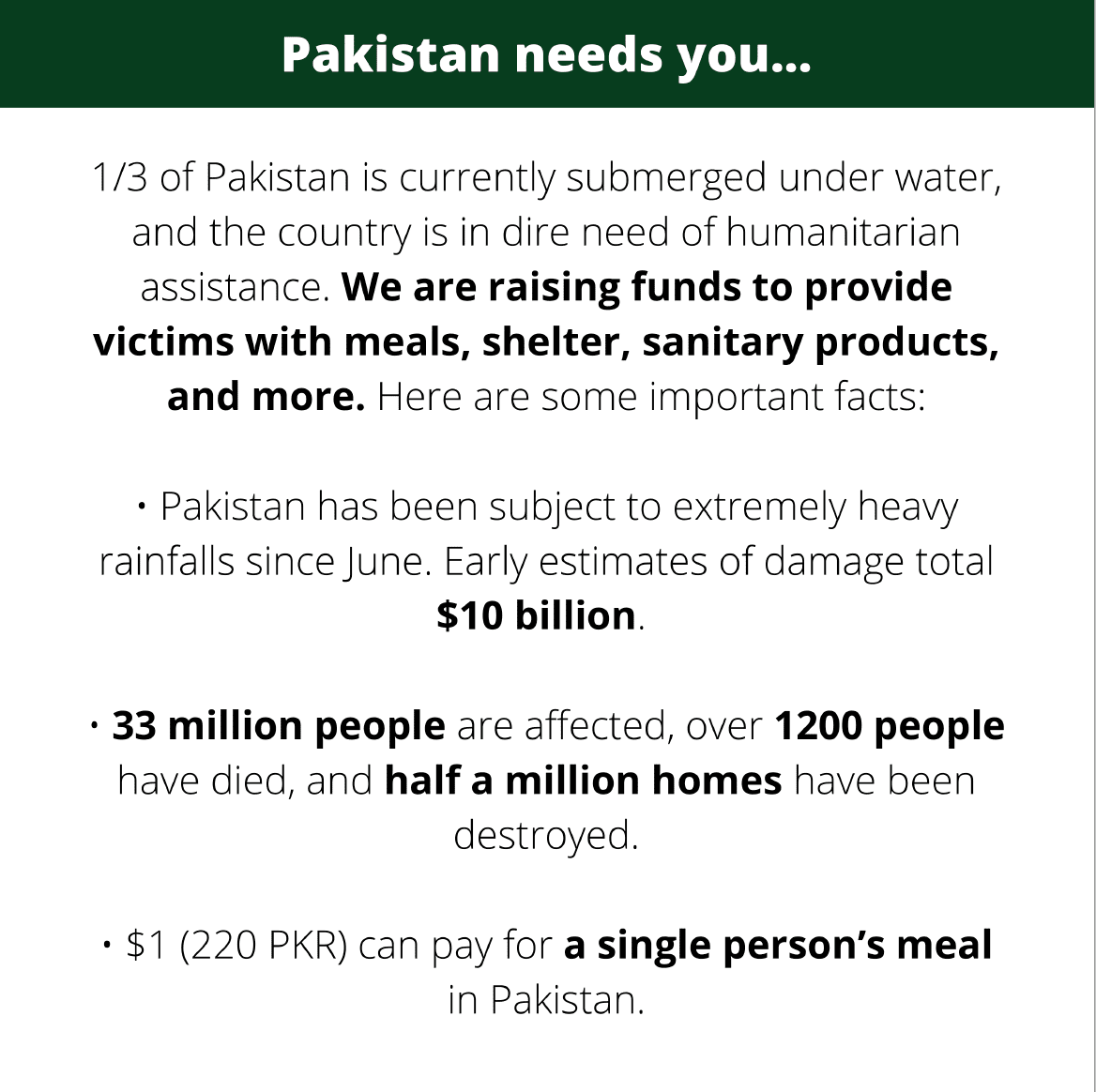The Harvard College Pakistan Student Association has been leading an effort around campus to raise awareness and relief funds around the catastrophic flooding in the country. The effort has galvanized other South Asian organizations to join the cause. We asked students, faculty and fellows from around Harvard and at least one currently based in Pakistan to tell us more about the situation, their personal reactions and what needs to be done next.
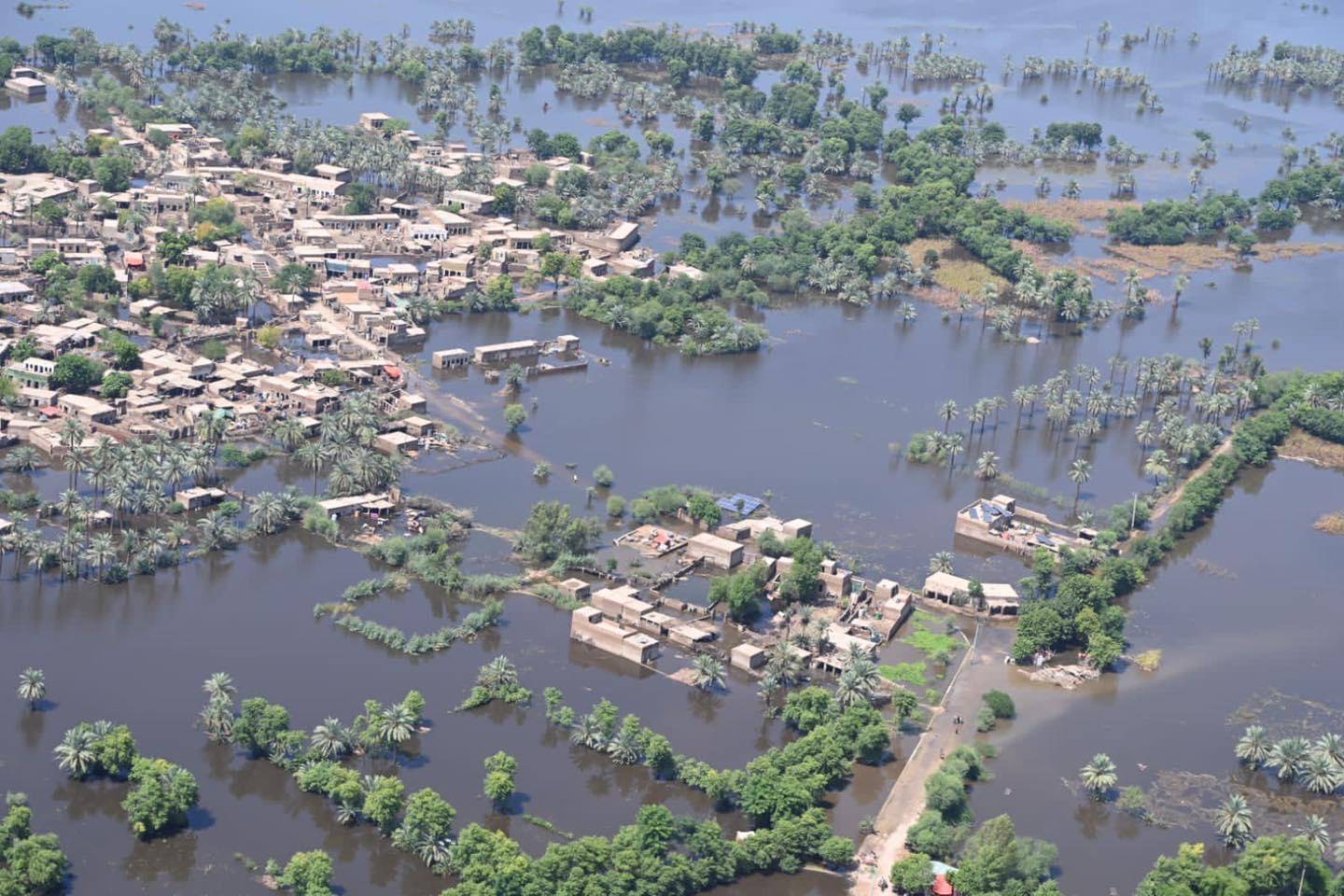
Sindh, Pakistan covered in flood water in August 2022. By Ali Hyder Junejo.


“With over 30-million people affected and over 1,400 deaths, the ongoing flooding in Pakistan is a climate catastrophe.
As American-born Pakistanis, and co-presidents of the Pakistani Students Association at an institution like Harvard, we feel it is imperative to leverage our positions and privileges to contribute to the relief effort in a place many of our students and their families call home. To us, this means helping the community understand the gravity of the situation, creating networks of people driven to help, and using our voices to disrupt the silence that often accompanies problems affecting communities of color. We’ve been involved in inter-school discussions surrounding the issue, raising funds at the grassroots level, and urging Harvard faculty to spread awareness. Utilizing social media, common areas, lecture halls, and dining halls, we’ve been able to raise over $20,000.
While we are proud of what we have accomplished so far, we understand that climate change is only getting worse, and more disasters like this are inevitable. This, combined with the general apathy we have encountered among many, is a dangerous combination. Dangerous to our environment and especially dangerous to the children, women, and impoverished who are always hit the hardest in situations such as these. This is a humanitarian crisis, yet many turn a blind eye to what is happening in Pakistan. Our hope is to campaign for larger scale change to prevent these catastrophes from happening in the first place, and advocate for greater unity amongst people and cultures so that if they do occur, we are better equipped to handle them.”
— Harvard College Pakistani Students Association (HCPSA) Co-Presidents, Aseelah Ashraf ’24 and Omar Shareef ’23
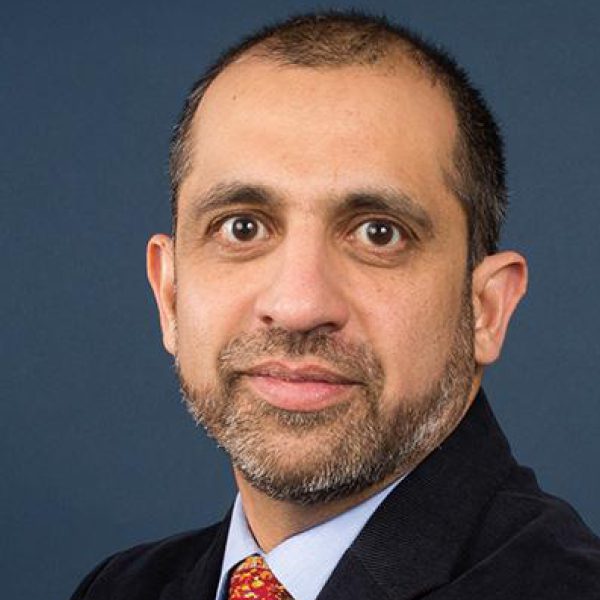
“As devastating as the floods are, sadly they may become a recurring feature as climate conditions change globally. Pakistan and other south Asian countries are at the forefront of these disastrous effects, and it is critical that we all come together to address these challenges. This will not only require more financial support but even more importantly, a concerted effort to produce the research that is needed and policy changes required – from better and more coordinated rescue, relief, rehabilitation, and reconstruction efforts to advance planning systems – to help us build greater resilience.” Read Professor Khwaja’s latest article in THE NEWS on Pakistan and its flooding.
— Asim Khwaja, Director, Center for International Development; Sumitomo-FASID Professor of International Finance and Development at the Harvard Kennedy School

“The sight of one third of Pakistan under water with over 40-million people affected is simply chilling. In the 75th year of independence where the Partition violence took the lives of hundreds of thousands, displaced million and affect many more, this natural disaster is poised to leave a lasting mark on the country and its people. The extremities of climate change will certainly engulf all of us unless we respond now with sustainable measures.”
— Yaqboob Khan Bangash, Fulbright Fellow, Mittal Institute

“Pakistan, its people, and most importantly its land were not ready for such a catastrophe and trauma as this. This is one of the worst natural disasters that any country has seen in this century. From rivers breaking their banks, flash flooding, and glacial lakes bursting, more than 33 million people have been displaced, 1500 people killed, and about 750,000 animals killed out of which 70% were livestock. The said is only the tip of the iceberg. The water is staying for another two months or so, resulting in food scarcity, water-borne diseases, and much more damage to the land that solely depended on agriculture, especially in the case of Baluchistan and Sindh. Pakistan is not ready for the next year’s Monsoon, and currently, it does not have the means, the infrastructure, and the strength to repair on its own. This should not be taken lightly as a Global South misfortune, this should be understood as a tragedy that Pakistan is bearing because of the massive contribution of carbon emission by the Global North. Pakistan does not only need support, but it also seeks climatic reparations.”
— Mehwish Abid, former Visiting Artist Fellow and a Lahore, Pakistan-based transdisciplinary architect-academic and visual artist

“To care for Pakistan and its people has been a test of each of our humanity, more than anything else. It has exposed some disappointing realities about the communities and systems we are a part of. On a daily basis on this campus, you will hear conversations and receive emails about climate change, social injustices, and other societal problems but when circumstances necessitated people to show up, when people are literally dying and could use any help possible, only a few translated their talks about “saving the world” into actions. This began as a student-driven campaign and remained as such – we have been fighting and will continue to do so because we simply care, and the lives of our people literally depend on this. As unfortunate as it has been for us to convince some that our people should not be overlooked nor are their lives any less valuable, the immense support and solidarity and selflessness from others across campus have restored our faith and hope…. This situation is a humanitarian disaster, and at its core, this is a matter of thousands of people dying, millions displaced, livelihoods simply destroyed, and a country at risk of potential starvation and health crisis…. Without students mobilizing, people simply would not be aware of thissituation, so your support matters, and I urge everyone to put in any possible time, energy, or care – someone will get to eat, sleep, or live because of it.”
— Iqra Noor ’23

“As a Pakistani American, I felt compelled to help with the flood relief efforts as I recognized that my position as a Harvard student accorded me access to immense resources that could assist people impacted by the devastating floods…. When PSA began the awareness and fundraiser campaign, I was astonished to see the reach and support that we were able to get across the College…. The work of the fundraiser organizers and the support of students around the College have helped us expand our efforts to include conversations with administrations. In these conversations, we have discussed the actions Harvard can take to support those in Pakistan affected by climate-change-induced flooding. Harvard often has institutional discussions centered around climate change and its impact on humanity around campus, but as it has begun to affect places like Pakistan globally, it is apparent that there is no real institutional response or support for those affected. I wanted to work with other students to change this for the sake of the people in Pakistan currently and for those who will be affected in the future. In this sense, I believe these efforts have made meaningful institutional changes too as we have seen that, through galvanizing the student body behind this effort, administration will listen. In this sense, I do feel a great sense of accomplishment when we work with administrators to figure out ways Harvard can use its institutional platform to support the flood relief cause and see true compassion extend from those in positions of authority at the institution.”
— Hamaad Mehal ’24
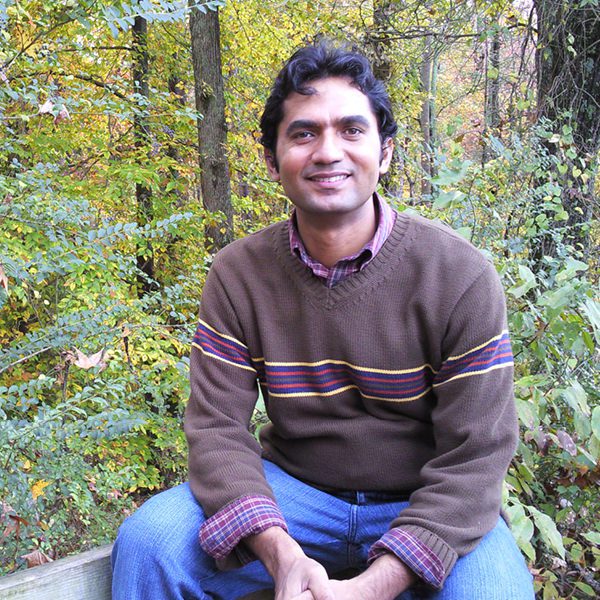
“These floods have devastated Pakistan in general and the Sindh and Balochistan provinces in particular. No one is saved. People’s cattle, fertile lands, happy homes….everything is gone!! YES, EVERYTHING THAT WE NAME AS LIFE IS GONE! I get engulfed into that helpless awe when I see the images and videos showing the miserable state of the people. As a commoner, I think about what caused the floods. The debate on climate change surfaces as one of the main reasons. Today, it is Pakistan. Tomorrow, it can be any other country. For the sake of humanity, can we do something? Pakistan’s case calls for action–action not only to help Pakistan but also to save humanity.”
— Liaquat Channa, Mittal Institute’s Syed Babar Ali Fellow

“’One third of Pakistan is under water’ — I’ve shared this fact with so many different people over the last few weeks that you would think that it would have lost some of its meaning. If anything, however, I feel like the enormity of it hasn’t sunk in yet. Even as the Harvard Pakistani Student Association, and its allies, make dining hall announcements, table outside the Science Center, or host fundraising events at our residential houses, I’m still disbelieving of the fact that my country — a country that is responsible for less than 1% of carbon emissions — is suffering the implications of climate change this extremely and disproportionally. The educational component of our organizing— raising a sense of urgency and awareness to the issue — is important, but we’re all hyper-aware of the purchasing power of a dollar back home and have been diligently working to encourage everyone — from Professors to staff to peers — to donate what they can. We must keep the momentum going and continue to advocate for those affected — because their lives depend on it.”
— Imaan Mirza ’25

“As a South Asian, supporting the Harvard PSA’s flood relief efforts has been really important to me at a personal and community level. Often, in South Asian cultural spaces at Harvard, we spend a lot of time talking about inclusion and representation, but I feel like those conversations are hollow if we’re not actively mobilizing and supporting one another, especially in times of crisis like this one. I joined the PSA’s campaign after their community meeting, to support my Pakistani friends with flyering, tabling, and presenting in dining halls and extracurricular spaces, often alongside fellow organizers from Harvard’s Palestine Solidarity Committee (PSC). As one of the directors for Ghungroo, Harvard’s South Asian cultural showcase and largest student-run production, my co-directors and I soon realized that we could leverage this platform to support the PSA’s efforts, and we are now excited to be organizing”Sur Sagar,” a cultural showcase and fundraiser event alongside PSA and the Harvard Advocate. I’m not Pakistani (my family is from India) but in the end, I think that being part of PSA’s efforts is a matter of solidarity and responsibility: in the past few weeks, I have been grateful to be a part of a movement where small groups of peoplefrom across campus have mobilized regardless of their connection to the issue– from members of the Palestine solidarity movement to the wider Desi community– and I really wish we could continue to see more of that at Harvard, beyond just the words and discussions.”
— Shraddha Joshi ’24

“I am driven to help as a Bangladeshi American because floods such as this will soon become, unfortunately, more regular occurrences if the West and larger nations don’t take action. PSA has shown the power in student organizing, they have been calling on Harvard, professors, deans, and students to take action – and I hope morepeople continue to pay heed. Harvard and the world cannot continue to ignore the issue of climate change, because today it is Pakistan, and tomorrow it will be another nation. I am very impressed with PSA’s efforts but disheartened by the lack of response from the administration and students. I hope moving forward we can support Pakistan and Pakistani students both financially and through legislation, to ensure that we can stop the sweeping tide that is climate change.”
— Afiya Rahman ’24
How to Help: A Relief Fundraiser by Harvard College Pakistani Students Association
The torrential monsoon rains in Pakistan have eclipsed the label of a mere natural disaster; Pakistan is undergoing a humanitarian crisis. In the past two months, the heaviest rainfalls on record have killed over 1,300 people and have severely impacted 33 million others. The National Disaster Management Agency (NDMA) estimates that over half a million homes have been destroyed. Relief efforts are direly needed given the rapidly-worsening situation. Harvard College Pakistani Students Association is raising funds to provide victims with meals, shelter, sanitary products, and more. Please donate what you can so we can help give much-needed funds to those suffering in Pakistan and please share this far and wide so we can raise much-needed awareness for this perilous situation.
